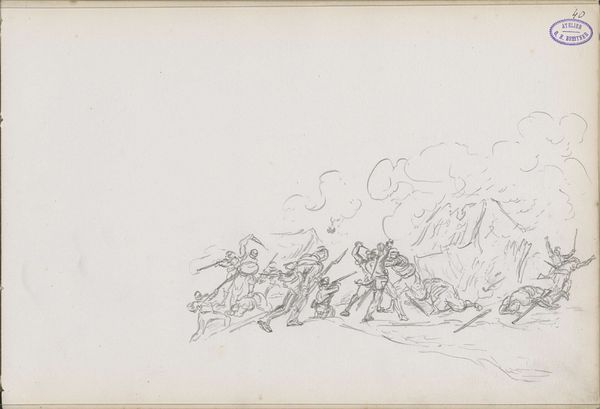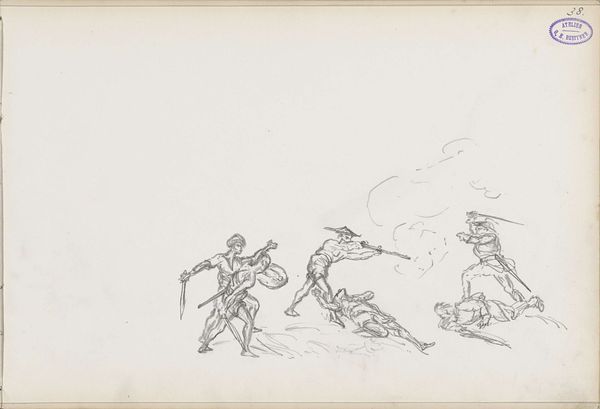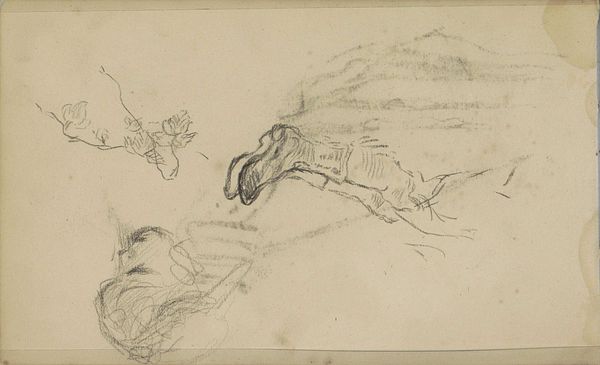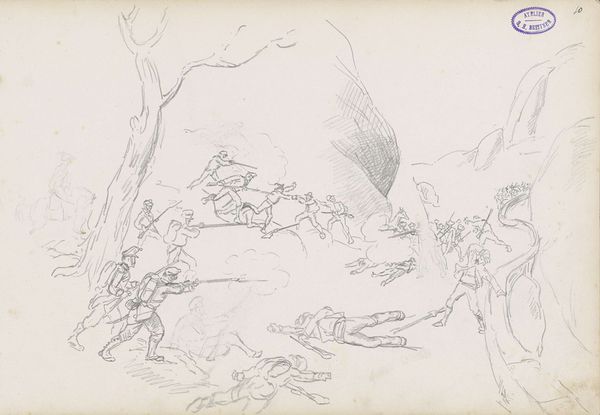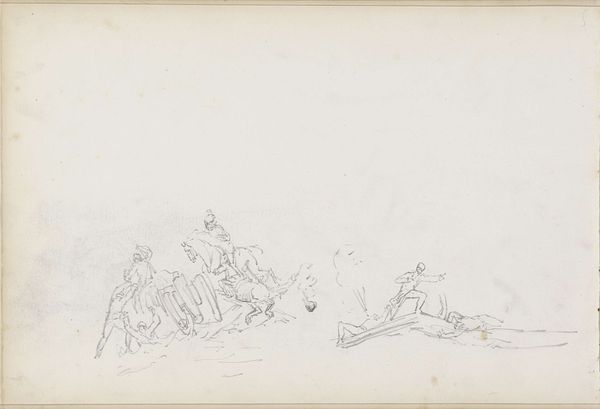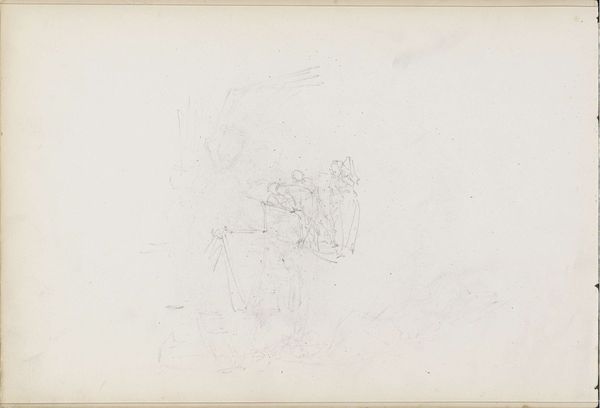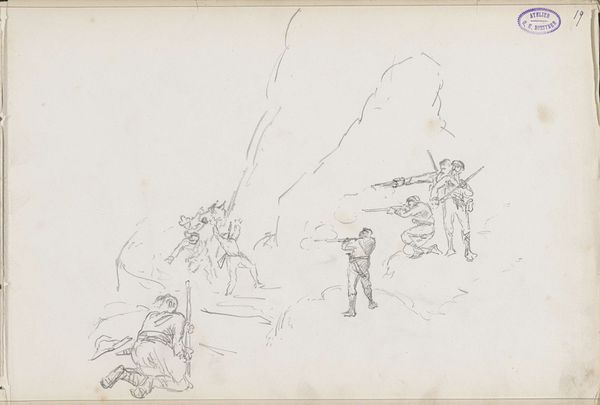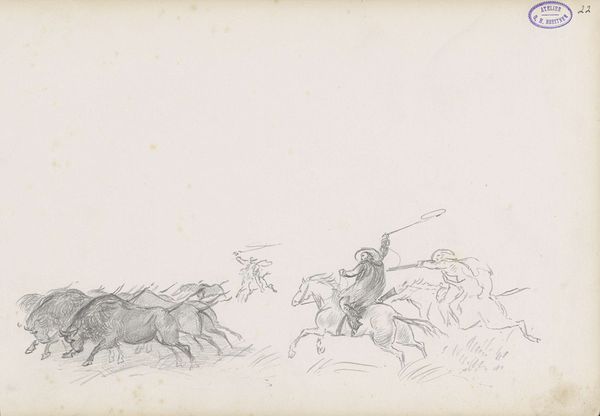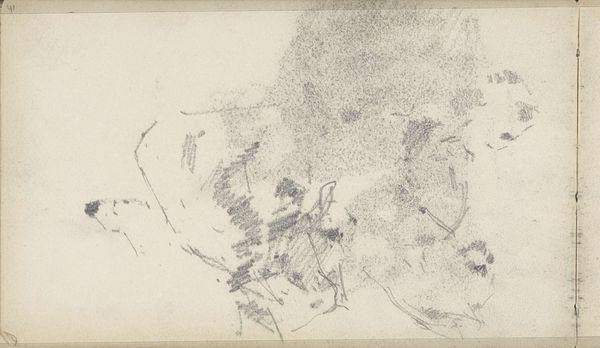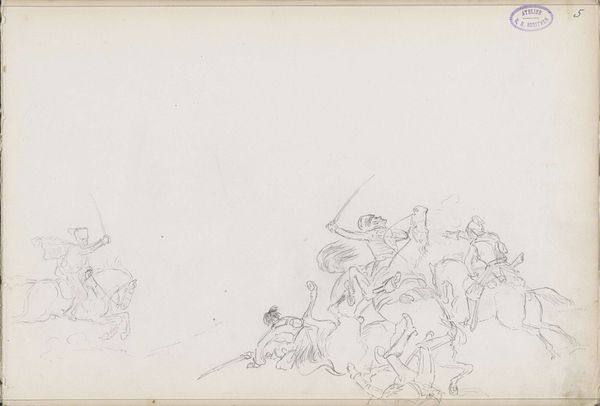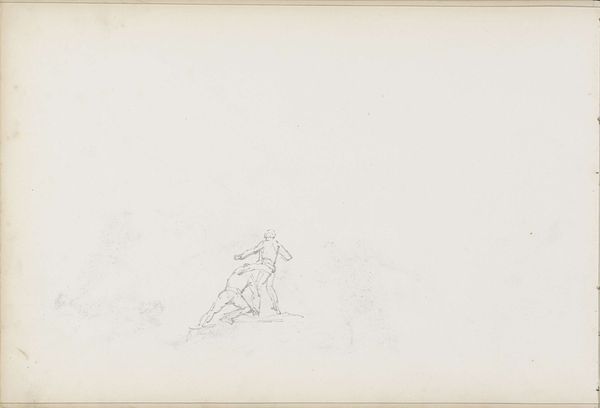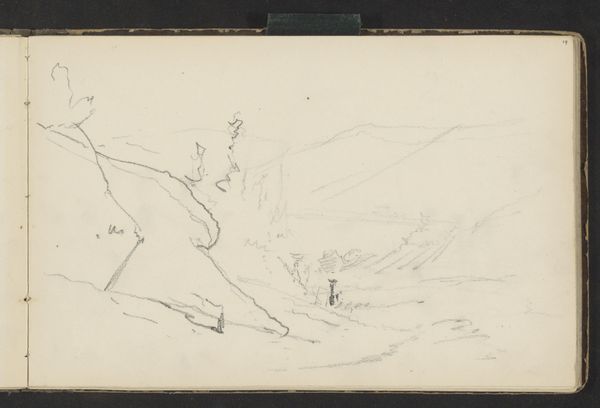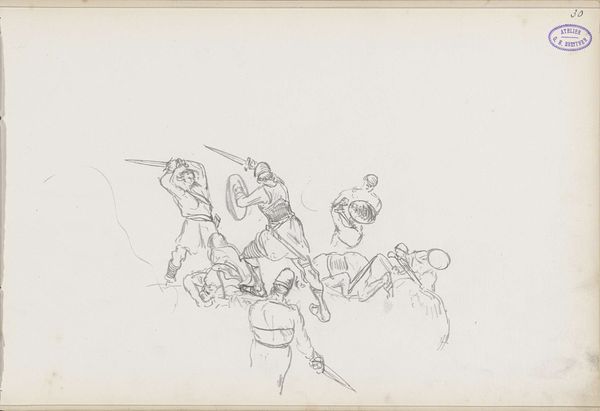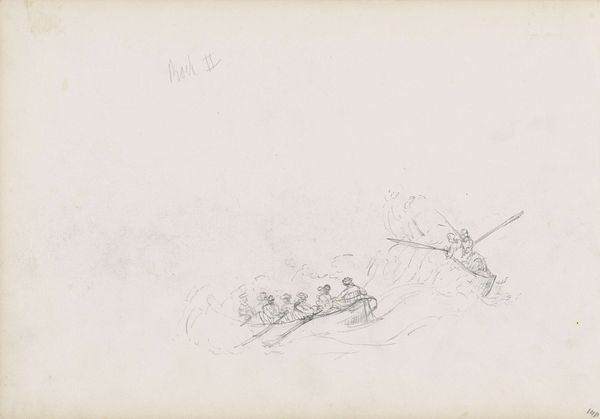
drawing, paper, pencil
#
action-painting
#
drawing
#
pencil sketch
#
landscape
#
paper
#
personal sketchbook
#
pencil
#
horse
#
realism
Copyright: Rijks Museum: Open Domain
Editor: This is "Strijdende soldaten," or "Fighting Soldiers," a pencil sketch on paper by George Hendrik Breitner, created sometime between 1872 and 1879. There’s a real sense of movement, almost frantic energy in the lines, but also it feels a bit… distant, like a scene glimpsed through fog. What’s your interpretation of this work? Curator: Breitner's sketch gives us a fascinating glimpse into the late 19th-century Dutch consciousness, a period wrestling with national identity, industrialization, and the echoes of colonialism. This frenetic scene – are they heroes or aggressors? Whose perspective are we adopting? Think about the legacy of military action: who benefits, and who suffers? Editor: That's interesting. I was just seeing soldiers fighting, but the 'who benefits' question makes me consider how Breitner himself might have felt about military conflict, and about the Netherlands’ role at that time. Curator: Exactly. Consider the art world in which he was working. Was Breitner pushing against romanticized depictions of war or aligning himself with the Realist movement, critiquing social structures through unflinching observation? What's compelling, to me, is how the sketch aesthetic – the raw, unfinished quality – allows for this ambiguity. Editor: I see what you mean. The looseness makes it less celebratory, more questioning. The quick strokes make it feel immediate but incomplete, as if the story is still unfolding. Curator: And consider the implications of that ‘unfinished’ narrative in a society undergoing rapid change. How does Breitner capture this tension, perhaps reflecting a society grappling with its role on the global stage? Does this piece critique power or celebrate it? Editor: So it’s not just about the visible subject matter, but also the underlying social and political currents that influenced the artist and his choices. Curator: Precisely. Art, even a simple sketch, becomes a mirror reflecting a complex web of power dynamics, societal anxieties, and evolving national identity. It really shows the importance of looking beyond the surface of what's depicted! Editor: I hadn't considered all of that. It gives the sketch a completely different weight.
Comments
No comments
Be the first to comment and join the conversation on the ultimate creative platform.
